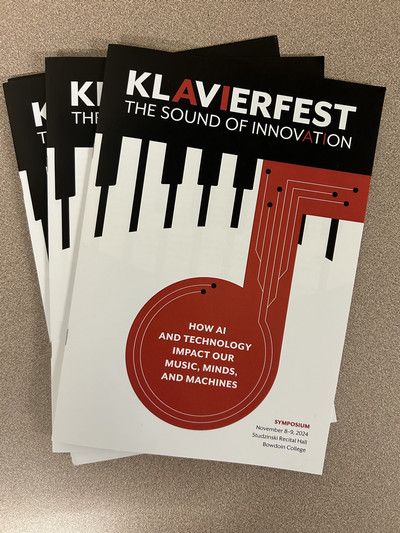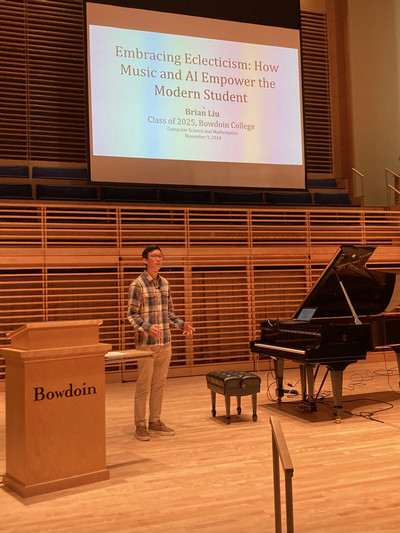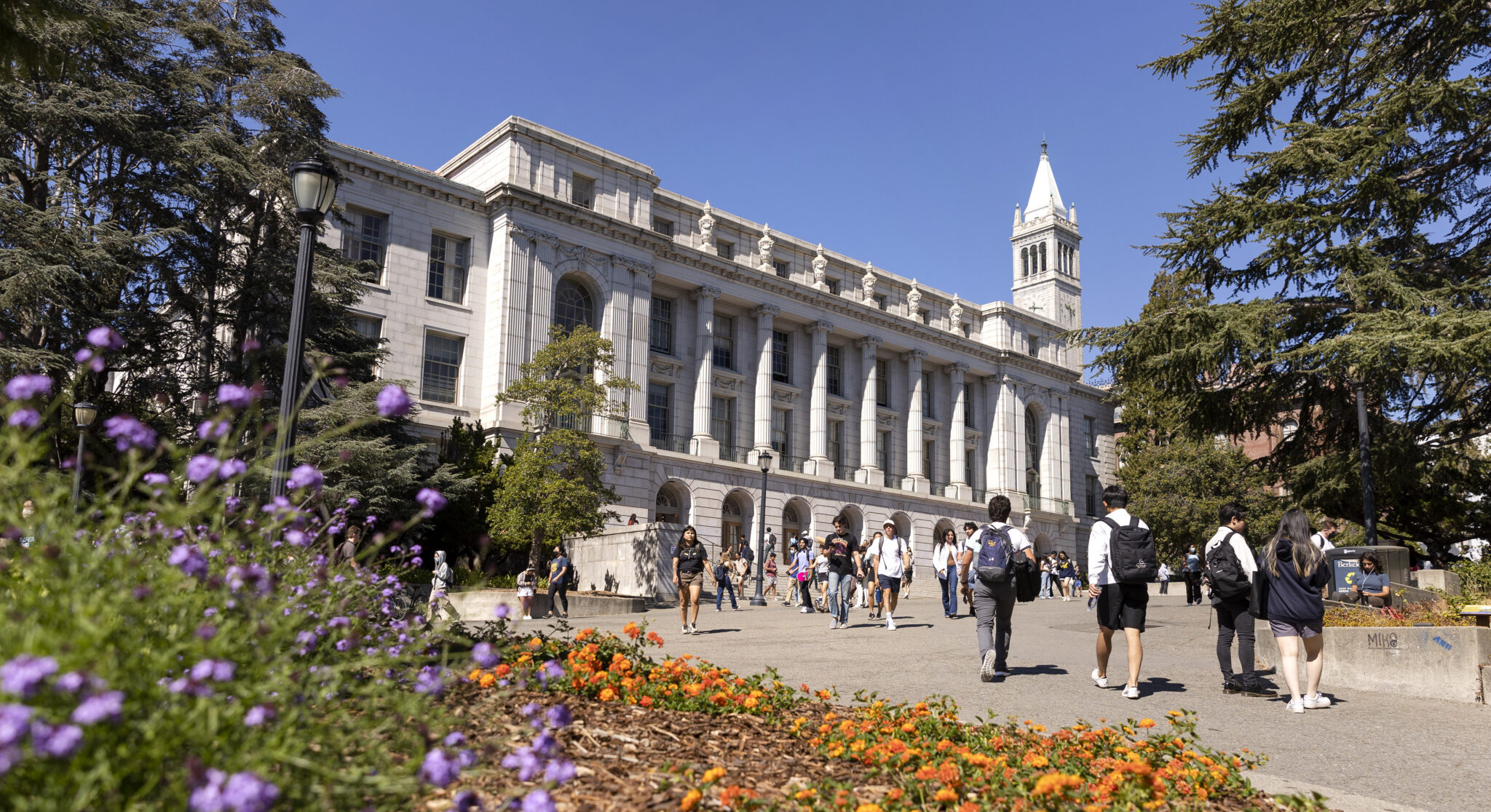AI in Music: Bowdoin Symposium Addresses Technology and Human Creativity


Brian Liu ’25 says AI can expand human creativity if properly used
Liu was the concluding speaker at “Klavierfest: The Sound of Innovation— How AI and Technology Impact Our Music, Minds, and Machines,” a two-day symposium held on the Bowdoin campus in early November.
The event, part of Bowdoin’s AI teaching and learning initiative, explored how AI is revolutionizing composition and performance. It featured a number of world-renowned experts examining the intersection of artificial intelligence, cutting-edge technology, and the timeless art of music.
“Growing up, I discovered that music wasn’t just a hobby but a means of expression, especially significant for someone like me, who lives with hearing loss,” said Liu, whose musical achievements include a Masterclass Prize from the Music Teachers Association of California and second prize in the US Open Music Competition. “Piano became a way to articulate emotions,” he explained, “and I became interested in sharing how music could help us explore ourselves.”
As he moved into higher education, Liu said his curiosity for understanding the world more deeply also led him to pursue mathematics and computer science. “The rigors of mathematical thinking fed into my understanding of practicing music and its structure,” he said, “while music gave me an emotional grounding and a kind of creative thinking that brought nuance to my problem-solving in math and computer science.” Liu’s passion for these intersections led him to a Gibbons Summer Fellowship in 2022, when he explored ways of using computer algorithms in music composition.
Liu’s lecture, titled “Embracing Eclecticism: How Music and AI Empower the Modern Student,” talked about “taking the best, most useful aspects from many different fields, and integrating them to expand our creativity and understanding.”
In a liberal arts setting, Liu sees eclecticism as more than just a way of thinking: “It’s a philosophy of learning, a form of intellectual openness, where different ideas and disciplines inform each other to create richer, more nuanced perspectives. For example, combining music with technology or mathematics doesn’t diminish any of those disciplines. Instead, it expands their boundaries and encourages us to make new connections for problem-solving or creating.”
As for ways that music and AI can empower the modern student, explained Liu, “both provide students with tools for exploration and creativity. Music allows us to express the inexpressible by being a gateway to understanding human emotions and experiences. AI, on the other hand, gives us the ability to analyze, generate, and generalize, making sense of complexities at an incredible pace.” The synergy of these two factors, he said, can help students to innovate and explore their creativity without limits.
For his own part, Liu sees AI as an extension of his “creative toolkit.” During his Gibbons fellowship project, for example, he experimented with generative frameworks to develop composition software. “This software could take my improvisations… and transform them in real time, blending mathematical frameworks with my musical expressions.” This early exploration, he said, sparked an ongoing fascination with how AI could contribute to music in a deeply personal way. For his next project, Liu hopes to collaborate with faculty from the music department. “I want to see how deep learning could be used in learning structures of improvisation or to help as a form of music-based intervention for patients experiencing pain.”
While AI is an incredible tool, remarked Liu, it’s important to remember that it is just that—a tool and not a replacement for human creativity. “True creativity involves unpredictability, emotion, and a deeply personal connection with what you create. AI is capable of recognizing patterns and generating content, but the human aspect, the spontaneous spark of an idea, the lived experience that shapes how we uniquely approach art, is irreplaceable.”
link






